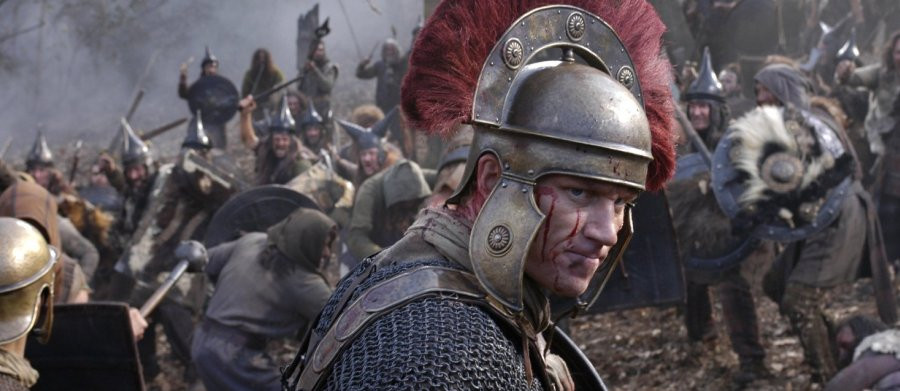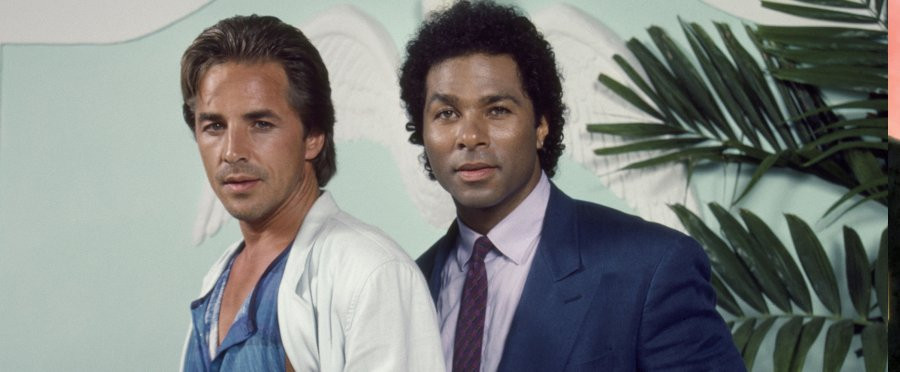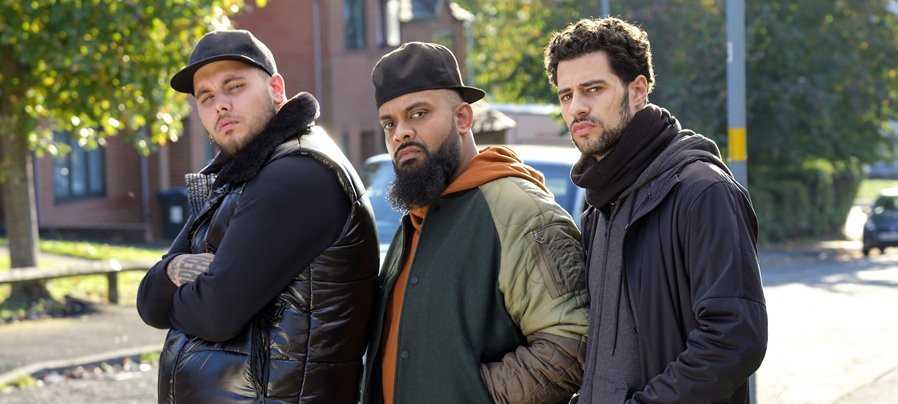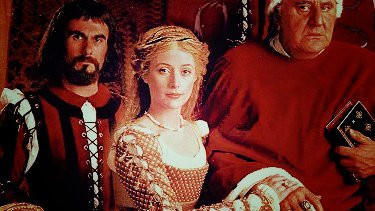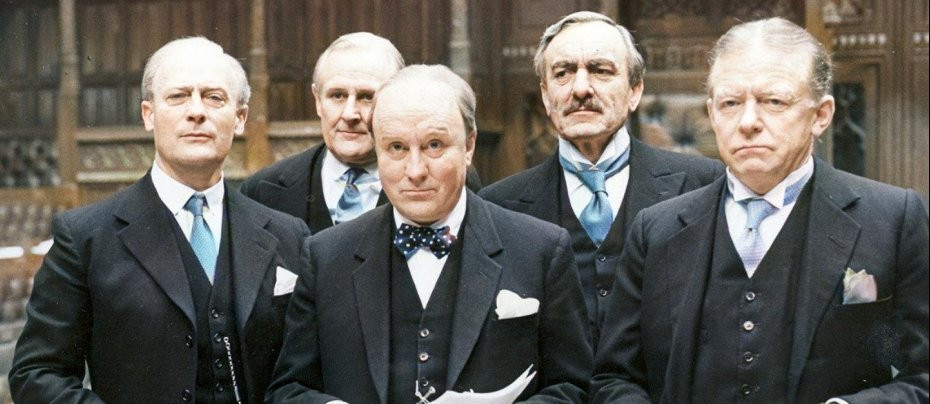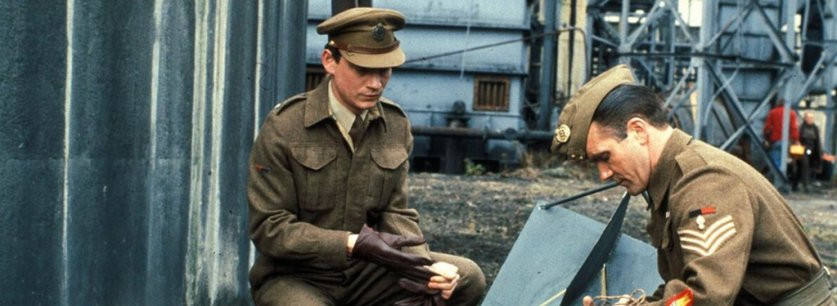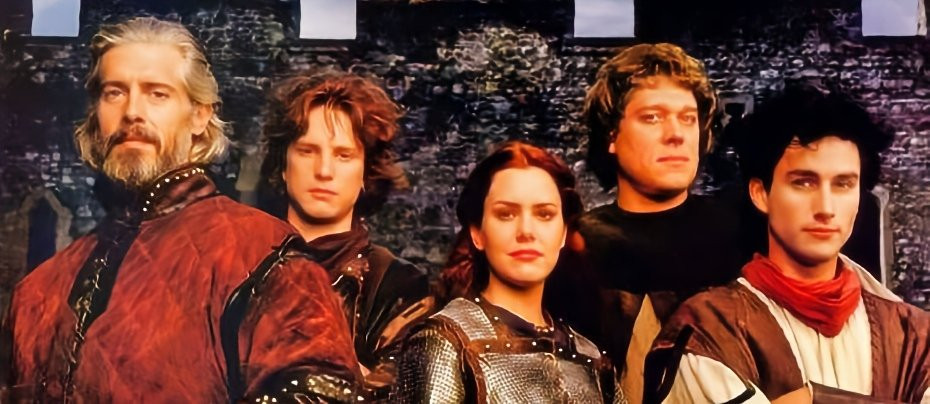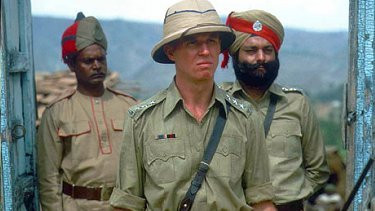
The Jewel In The Crown
1984 - United Kingdom'No one enjoys watching the decline and fall of the British Empire as much as the British, and no one pictures it better. They are particularly skilled at taking the dark chapters of their history and turning them into great entertainment. That is precisely what Granada Television did with The Jewel In The Crown, a tour de force that never stops sparkling on air and in our hearts and memories. As it had in Britain earlier in the year, it held viewers hostage for four months when it was shown on Masterpiece Theatre (in the USA) in 14 stunning episodes in 1984. It dwarfs all other series in its visual scope as well as in its richness of characters, plucked from The Raj Quartet, four novels by Paul Scott that tell the story of England being shaken loose from India after centuries of unchallenged rule.' - (Masterpiece Theatre by Terrence O'Flaherty published 1996)
In the early 1980's Granada Television's Managing Director Sir Denis Forman had taken a holiday in Greece, and whilst he was there he had read Paul Scott's Raj Quartet (written between 1965-75). He was impressed, and with good reason. After recovering from losing a leg at Cassino in World War Two, Forman had been sent, on crutches, to take charge of the handover of the Dehra Dun military academy to the Indian Army. Whilst in India he had grown attached to the country. He now created the framework for The Jewel In The Crown but had to take some serious financial risks in order to see the project through. Dramas of this type always relied on sponsorship and some of the biggest investors were American oil companies. However, a story of colonial India was unlikely to appeal to audiences in the USA. In the end, Forman only managed to secure the finance to balance the books when the project (which cost £6million) was near completion. Christopher Morahan, former Head of Plays at Granada and the Producer of Jewel remembers how the company decided to forge ahead without contribution from any co-producer, but also how this was to his advantage. "All creative decisions were made by us." Morahan spent the next few years commuting between Manchester, Delhi, Bombay, London and Simla.
Scott's quartet is full of flashbacks and flash forwards, but right from the start the decision was made for the series to move forward in chronological order. When Christopher Morahan joined the project six scripts had already been written by Ken Taylor and another writer. "When I was asked to produce it, one condition of accepting was that Ken Taylor must write them all. I told Granada you must write off six of those scripts and I want Ken to start again and write another six - and they agreed."
Fortunately Granada had some experience of filming in India which almost acted as a pilot for exploring all the logistical problems they might encounter. The one-off drama Staying On, which starred Trevor Howard and Celia Johnson, had been well received on its broadcast in the UK so the signs were encouraging.
On the first day of filming in India, and before a single frame was shot, a holy man came to bless the production. Three of the production staff and one member of the cast were chosen to take part in the ceremony which required them to remove their shoes, squat on the ground and have their foreheads marked with sandalwood paste. They then had red and yellow woollen thread tied round their right wrists and were invited to pelt the holy man's portable shrine with flowers. The production team probably thought they needed every advantage because problems arose even before this first day of filming. Granada had allowed three weeks to ship over all the equipment, scenery, first aid items, lights and costumes. But problems with customs in Delhi arose when some paperwork was found to have not been filled out correctly and nine empty lorries were forced to simply sit and wait for days on end. Four months were spent shooting in India and on return to England for another twelve months of production disaster struck when a fire destroyed the Botony Warehouse at the rear of Granada's studios that contained costumes, sets and props. Other delays were caused by matching up scenes shot in India with scenes shot in England, such as the scene where a character orders a cup of tea on the veranda of a house in Simla and has it served in the studio in Manchester.
Starting in 1942 the story is told against the backdrop of the last days of the British Raj, the period of British colonial rule in South Asia which was instituted in 1858, when the rule of the British East India Company was transferred to the Crown in the person of Queen Victoria. Hari Kumar (Art Malik) is a young Indian man who was taken to England at the age of 2 by his ambitious Indian father who wanted to make sure that his son would grow up to be a proper English gentleman. But when his father's money ran out, Hari was shipped back to Mayapore, where he found himself an outsider, snubbed by the British rulers and despised by Indians for being too British. He manages to get a modest job on an English-language newspaper and lives with his aunt.
He becomes involved with a British woman, Daphne Manners (Susan Wooldridge), the niece of a military family with a respected name in India. But Daphne also has the misfortune to catch the amorous attentions of a police officer named Ronald Merrick (Tim Pigott-Smith), who is using his post in India as a means to climb out of his humble middle-class origins back home. Brandishing a pronounced sadistic streak, Merrick takes an intense dislike to Hari who, despite the Indian's despised dark skin, looks and sounds like the stereotypical English gentleman. One night, Daphne and Hari are attacked in the Bibighar Gardens by a group of unknown men and Daphne is raped. It is at this point that Hari's fate at the hands of the vicious Merrick is sealed.
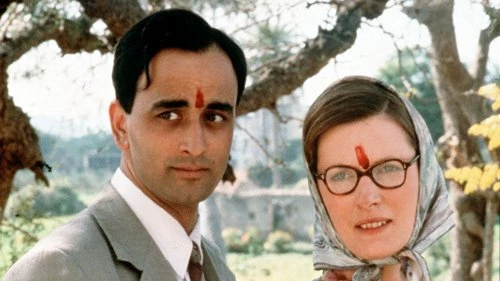
Hari is put in prison where he is brutally tortured, despite Daphne's insistence that he is innocent. Determined to see justice, Daphne informs the authorities that she will undermine Merrick's case should it come to trial. Faced with this possibility Merrick instead holds Hari in connection with acts of terrorism.
Daphne dies whilst in childbirth and the story shifts to a military family called the Laytons who have moved to India to attain a style of life they could never have afforded in Britain. Mildred (Judy Parfitt) is the arrogant alcoholic mother whilst her daughter Sarah (Geraldine James), is one of the most sympathetic characters in the series. In contrast, her sister Susan (Wendy Morgan) is the least sympathetic; selfish, fickle and weak, she marries Teddy Bingham (Nicholas Farrell) , a young officer whose new roommate is Merrick, now a high-flyer in the Army. But shortly after the wedding Teddy is killed and Susan eventually marries Merrick. But certain sections will not let Merrick forget his part in the wrongful imprisonment of six men, including Hari Kumar. As the series reaches conclusion and the British prepare to depart Merrick is murdered by an Indian youth, one of the many he has abused, who leaves a word scrawled across a mirror; Bibighar.

There is tension in the city as India prepares for the break with Pakistan; Hindus and Muslims are burning one another's shops. Sarah and Susan prepare to leave on a train accompanied by Ahmed Kasim, a Muslim leader. But the train is ambushed and Kasim is murdered. The train then continues to its destination, Premanagar station where the full horror of what has happened is revealed. Muslim men, women and children have been butchered in their carriages. It is left to Sarah to sum it all up: "There's nothing we could do. Like Daphne Manners. Like Hari Kumar. After 300 years of India, we've made this whole damned bloody senseless mess."
The Jewel In The Crown proved to be the pinnacle of British drama making and it also stirred up a huge amount of publicity for the BBC - all of it adverse. The Corporation ran against it with The Thorn Birds, a tacky imported series from the USA starring Richard Chamberlain as a Catholic priest who falls from grace, most notably by having sex on the beach. Douglas Hurd, the then Home Secretary, publicly criticised the BBC whilst praising Granada. In spite of The Thorn Birds getting higher ratings the publicly funded BBC was accused of running unoriginal, bought in tat, while commercial television transmitted exceptionally high quality public service programming. But The Jewel In The Crown set a standard in broadcasting that would not be surpassed.
The series won five BAFTAS out of 10 nominations including Best Actor for Tim Piggott-Smith and Best Actress for Peggy Ashcroft. It also won Best Mini Series at the Golden Globes and Best Limited Drama at the Emmys. Unfortunately, today it stands as an example of what could be achieved on television - but hasn't been since.
Seen this show? How do you rate it?
Seen this show? How do you rate it?
Published on December 25th, 2018. Written by Marc Saul 2010 Sources of reference: The Making of The Jewel In The Crown (1983) Masterpiece Theatre (1996) The Dream That Died - The Rise and Fall of ITV (2008) Granada Television - The First Generation (2003) for Television Heaven.


